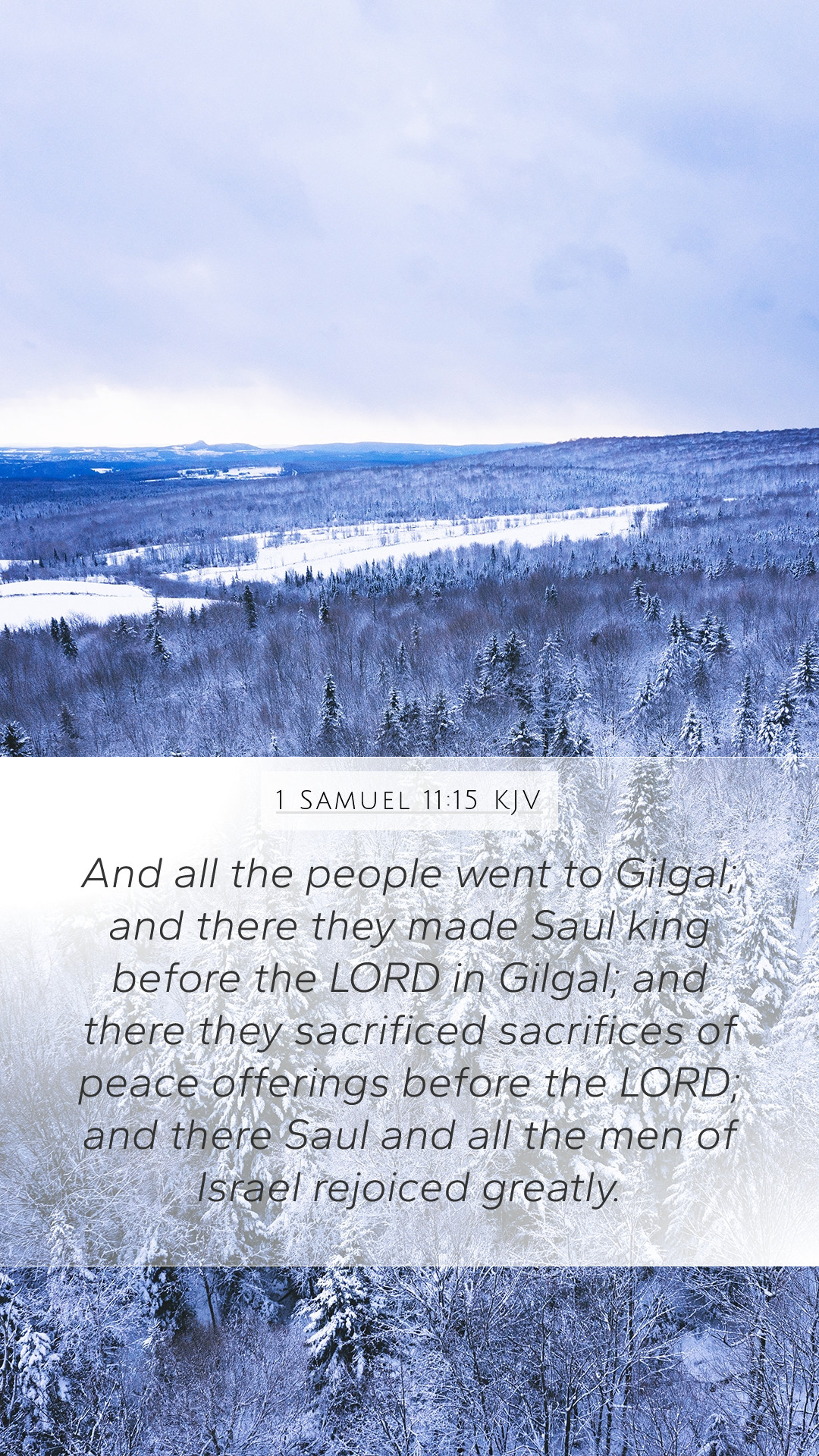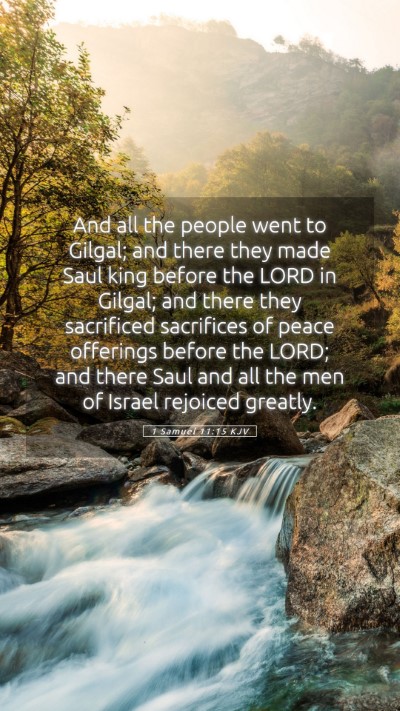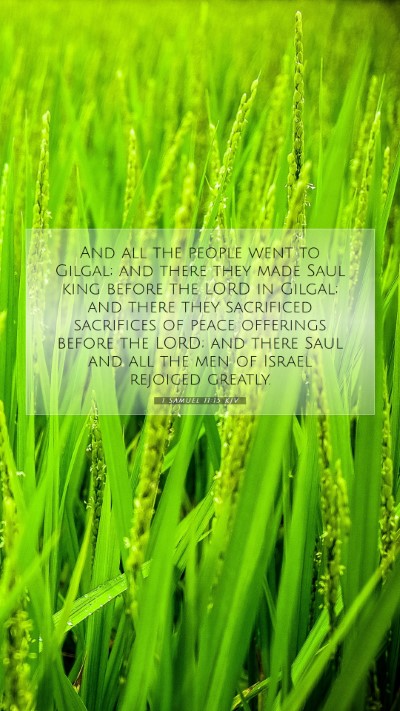Bible Verse Meaning of 1 Samuel 11:15
Verse Context: The verse reads, "And all the people went to Gilgal; and there they made Saul king before the Lord in Gilgal; and there they sacrificed peace offerings before the Lord; and there Saul and all the men of Israel rejoiced greatly." This marks a significant moment in the history of Israel as Saul is publicly recognized as king.
Summarized Commentary Insights
Matthew Henry's Commentary
Matthew Henry highlights the importance of this event as a pivotal moment in Israel's transition from a loose federation of tribes to a united monarchy. The people's acknowledgment of Saul as king signifies their acceptance of divine guidance and leadership. Henry notes the importance of the location, Gilgal, as a site of remembrance for Israel's deliverance by God. The sacrifices and celebrations demonstrate the people's joy and commitment to follow God under Saul's reign.
Albert Barnes' Notes on the Bible
Albert Barnes emphasizes the significance of the gathering at Gilgal. He explains that this event represents the formal inauguration of Saul as king, and it is a public act of recognition that re-establishes political order. Barnes also points out that the peace offerings symbolize the people's gratitude and covenant with God, underscoring the spiritual dimension of Saul's kingship.
Adam Clarke's Commentary
Adam Clarke offers insights into the implications of Saul's kingship. He explains that the joy expressed by the people at Gilgal reflects their hope for a strong leader to unite them against their enemies. Clarke also delves into the symbolism of the peace offerings, indicating that they were not merely ritual actions but signified a communal bond with God and with each other, essential for the nation's cohesion.
Key Themes and Interpretations
- Divine Authority: The acceptance of Saul as king illustrates the belief in God's sovereign choice of leadership for His people.
- Community and Unity: The communal celebration underscores the importance of unity in the face of challenges, encouraging groups to come together for a common purpose.
- Significance of Sacrifices: The peace offerings not only served as worship but also represented a commitment to living under God's guidance.
- Historical Context: This moment in Israel's history marks a pivotal change, where the people desired a king to lead them as other nations were led.
Application to Modern Life
Understanding this verse provides valuable lessons on the importance of leadership, community, and divine guidance in our lives today. Believers can reflect on their leadership structures, both secular and spiritual, and how they can cultivate a supportive community that honors God.
Related Bible Cross References
- 1 Samuel 10:24 - The public declaration of Saul as king.
- 1 Samuel 12:1-5 - Samuel's farewell address and reaffirmation of Saul's leadership.
- Deuteronomy 17:14-20 - God’s instructions regarding kingship in Israel.
- 1 Chronicles 12:38-40 - The people gathering to support David as king, showing continuity in leadership themes.
Conclusion
This analysis of 1 Samuel 11:15 reveals profound meanings pertinent to both the historical context of Israel and modern applications within faith communities. For those seeking Bible verse meanings, Bible verse interpretations, and Bible verse explanations, this verse serves as a reminder of the importance of God-centered leadership, community unity, and spiritual commitment.


